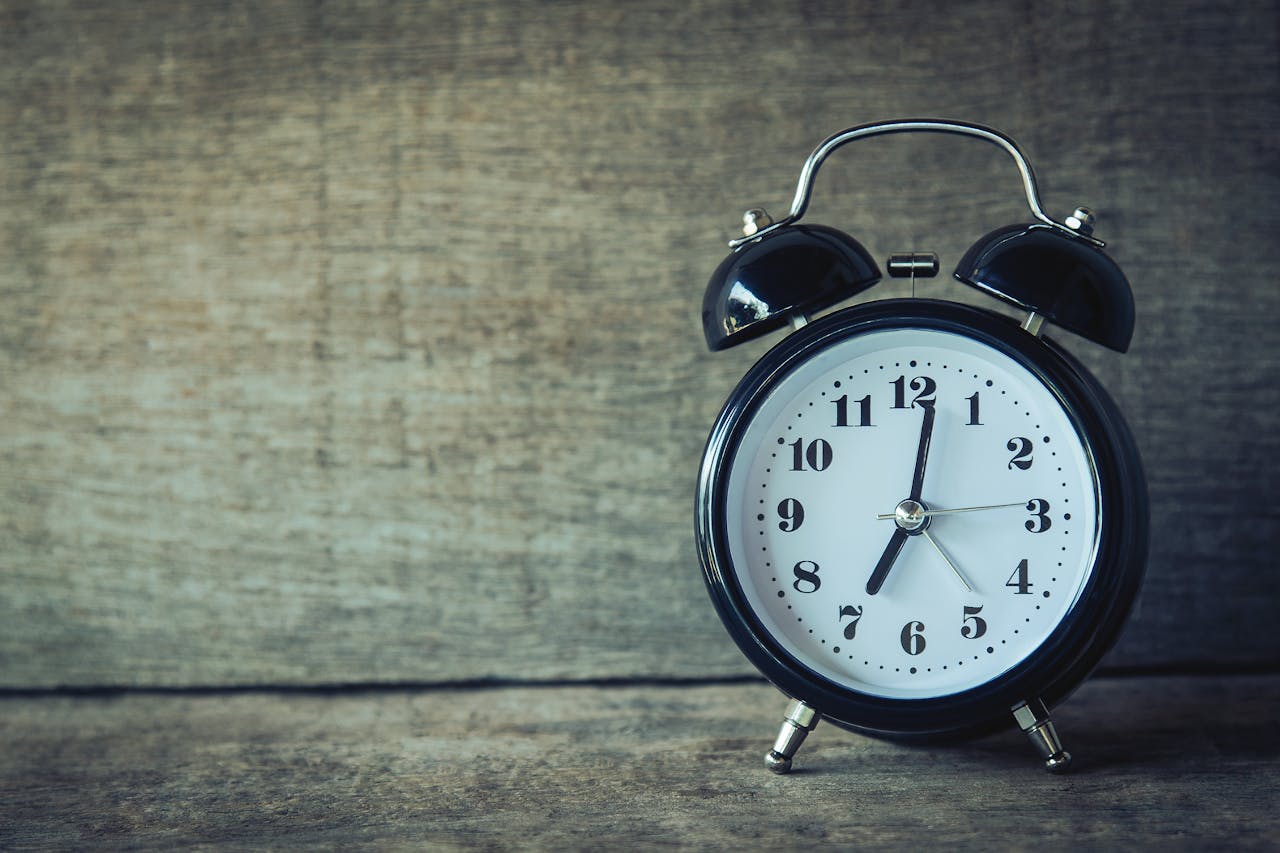Write Us: hello@ali5.org
How to Wake Up Early Without Hating Your Life
Want to wake up early and actually feel good about it? Learn smart, doable steps to shift your sleep cycle without sacrificing your sanity.

Let’s be honest: mornings can be brutal. Especially if you’re not a natural early riser. Your alarm goes off. Your bed feels like heaven. And the world outside feels like it can wait. You snooze, maybe once or twice… or six times. Then you rush through your morning, irritated and groggy, wondering how people manage to wake up early and like it.
Here’s the thing: waking up early doesn’t have to feel like punishment. You can become a morning person, without resenting your alarm clock, without pouring three cups of coffee just to function, and without sacrificing your sanity.
I used to be the kind of person who dreaded early mornings. Now? I wake up around 6:30 and actually enjoy it. No, I’m not superhuman. I just stopped doing it the hard way.
Let’s break down how to wake up early without hating your life.
First, Why Even Bother Waking Up Early?
You’ve probably heard that the most successful people wake up early. That’s not a reason enough. But here’s what really makes it worth it:
-
Quiet time before the world wakes up
-
A slower, more intentional start to your day
-
Better productivity (your brain is freshest in the morning)
-
Time for things (you never get around to reading, journaling, working out)
-
Less morning chaos (no more running out the door half-dressed)
It’s not about joining the 5 AM club. It’s about giving yourself more control over your day, before everyone else starts making demands of your time.
Step 1: Don’t Change Everything Overnight
If you usually wake up at 9, don’t try jumping straight to 5:30. That’s how people fail and give up. Instead, shift your wake-up time in small, manageable increments, 15 to 30 minutes earlier each week.
This helps your body adjust gradually, which means less shock and less grumpiness.
If you’re currently waking up at 8:30, try 8:00 for a few days. Then 7:30. Ease into it. It’s not a race.
Step 2: Fix Your Bedtime (Yes, You Have To)
You can’t wake up early and still go to bed at midnight. That’s not discipline, that’s sleep deprivation.
Most adults need 7–9 hours of sleep. If you want to wake up at 6:30, start winding down by 9:30, and aim to be asleep by 10:30.
Here’s how to actually fall asleep earlier:
-
No screens 30-60 minutes before bed (your phone’s blue light delays melatonin)
-
Make your bedroom dark, quiet, and cool
-
Do the same routine every night, and your brain learns that “brushing teeth + reading = sleep time”
Start treating your bedtime like an important meeting. Show up for it.
Step 3: Make Waking Up Feel Good
If your first thoughts in the morning are “Ugh, kill me,” you’re doing it wrong. The key is to give yourself something to look forward to.
Build a morning ritual that feels good. It can be simple:
-
A hot shower
-
Your favorite playlist
-
A good cup of coffee or tea
-
Ten quiet minutes of journaling or stretching
-
Reading something that inspires you
Make the first 15–30 minutes of your day something you actually want to experience. When you start your day with pleasure instead of panic, everything shifts.
Step 4: Use Your Alarm Smartly
Here’s a truth most people don’t want to admit: if you snooze your alarm multiple times, you’re not getting more sleep. You’re getting fragmented, low-quality sleep that leaves you more tired.
Better strategy?
-
Put your alarm across the room. You have to get up to turn it off.
-
Use a gentle sound, not a heart-attack-inducing blare.
-
Try wake-up light alarms that simulate sunrise; they feel more natural.
And once you’re up, get light into your eyes. Natural light (or a bright artificial one) tells your body to stop producing melatonin.
Step 5: Don’t Jump Straight Into Stress
A lot of people wake up and immediately check emails, scroll through news, or look at social media. This floods your brain with dopamine and anxiety before you even brush your teeth.
Protect your morning. Don’t start your day reacting to the world. Start by checking in with yourself. Even five quiet minutes can make a difference.
Try this instead:
-
Sit still for a minute.
-
Breathe deeply.
-
Write down one thing you’re grateful for.
-
Set an intention for the day.
Sounds small, but it sets the tone.
Step 6: Prep the Night Before
Want your morning to feel easy? Don’t leave all the thinking and decision-making for when you’re half-asleep.
Try doing these before bed:
-
Lay out your clothes
-
Plan your breakfast
-
Write your to-do list for the next day
-
Charge your phone away from your bed
This way, you wake up and move like you already know what to do. No scrambling. No decision fatigue.
Step 7: Stay Consistent (Even on Weekends)
This one hurts, but it’s important. If you wake up at 6:30 on weekdays and 11 on weekends, your body never gets into rhythm. It’s like giving yourself jet lag every Monday.
Try to keep your wake-up time within 30–60 minutes of your weekday schedule, even on weekends.
Trust me: it makes Mondays way less awful.
Step 8: Don’t Aim for Perfect, Aim for Progress
You’re not a robot. Some days will be harder than others. That’s normal.
The goal isn’t to wake up early every single day like a machine. The goal is to build a habit where waking up earlier feels doable, and eventually, enjoyable.
Even if you wake up early just 4 or 5 days a week, that’s a win. Progress is progress.
Final Thoughts
Waking up early doesn’t have to suck. It’s not about punishing yourself, it’s about creating space for you, before the world barges in.
When you make small changes, protect your sleep, and build a morning you actually like, waking up becomes something you don’t dread. It becomes your time. Your anchor. Your advantage.
So start small. Be consistent. And give it time.
Because when you stop hating your mornings, you stop hating your days, and that’s where everything starts to change.







